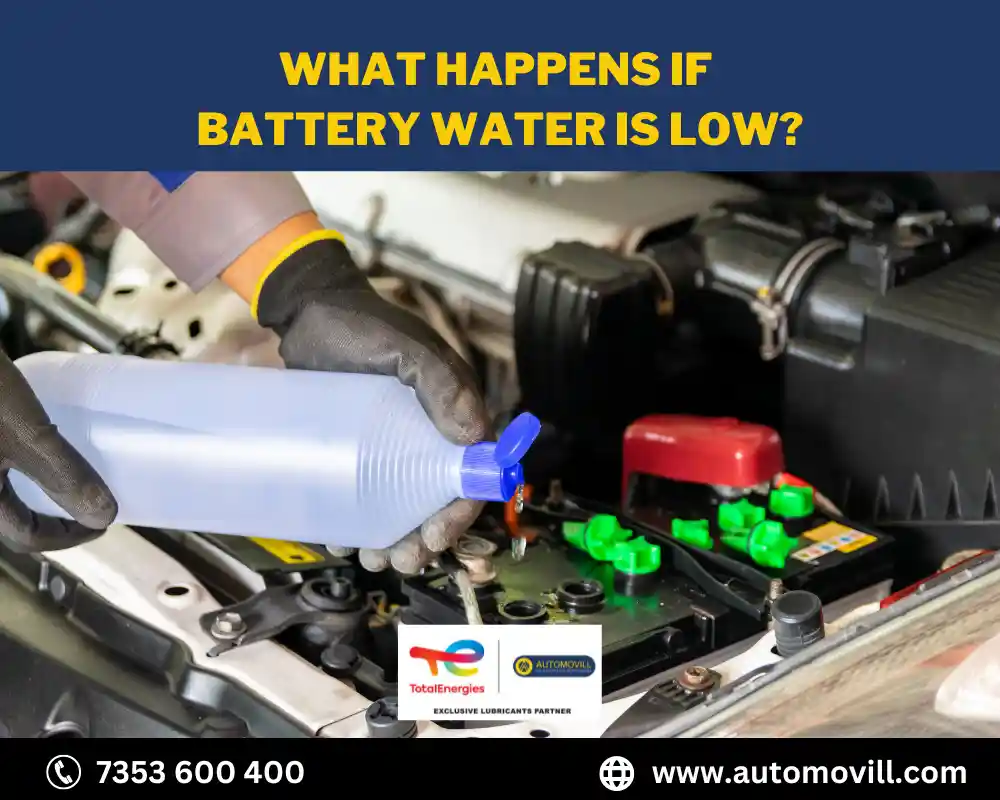
Maintaining a car’s battery is crucial for its overall performance and longevity. One essential aspect of battery maintenance is ensuring the proper water level inside the battery.
In this blog, we will explore what happens if car battery water is low and why it is important to keep the water level in check.
Understanding Car Battery Water
- The electrolyte in a car battery is a mixture of distilled water and sulfuric acid.
- Water acts as a medium for the chemical reaction that produces electrical energy.
- The water level in the battery needs to be maintained above the minimum mark indicated by the manufacturer.
How Does Battery Electrolyte Work?
- Battery electrolyte is a conductive solution that facilitates the flow of electrons between the positive and negative plates of the battery.
- The chemical reaction between the sulfuric acid and the lead plates generates electrical energy.
- Water, as part of the electrolyte, helps create the necessary conditions for this reaction to occur.
Consequences of Low Water Level
1) Reduced Electrolyte Levels:
- Insufficient water reduces the overall volume of electrolyte in the battery.
- Low electrolyte levels can hinder the chemical reactions necessary for the battery to generate power.
2) Poor Battery Performance:
- Inadequate electrolyte levels can result in reduced battery performance and capacity.
- The battery may struggle to deliver the required power to start the engine or run electrical components efficiently.
3) Increased Heat:
- Low water levels can cause the battery to overheat.
- Excessive heat can accelerate chemical reactions inside the battery and lead to faster degradation.
4) Accelerated Corrosion:
- Insufficient water can expose the battery’s lead plates, leading to corrosion.
- Corrosion decreases the battery’s efficiency and overall lifespan.
5) Sulfation:
- Low water levels can cause the electrolyte to become overly concentrated.
- Concentrated electrolytes can lead to the formation of lead sulfate crystals on the battery plates, resulting in sulfation.
- Sulfation reduces the battery’s ability to hold a charge and decreases its lifespan.
What Type Of Water Should I Use For My Car Battery?
- It is recommended to use distilled or demineralized water for topping up the battery.
- Distilled water is free from impurities and minerals that could potentially affect the battery’s performance.
- Avoid using tap water, as it contains minerals and impurities that can lead to electrolyte contamination and battery damage.
Signs of Low Water Level
- Visible low water levels in the battery cells.
- Difficulty starting the engine or weak cranking sound.
- Dimming headlights and other electrical issues.
- Reduced battery lifespan or frequent replacements.
Maintaining Proper Water Levels
- Regularly inspect the battery and check the water level.
- Use distilled or demineralized water to top up the battery if necessary.
- Avoid overfilling the battery, as excess water can lead to electrolyte leakage and other problems.
Conclusion
Keeping the water level in a car battery at an optimal level is crucial for ensuring its longevity and performance. Neglecting the water level can lead to poor battery performance, increased heat, accelerated corrosion, and sulfation.
By regularly checking and maintaining the water level, you can help extend the life of your car battery and avoid unnecessary inconveniences on the road. Remember, a well-maintained battery leads to a reliable and trouble-free driving experience.
